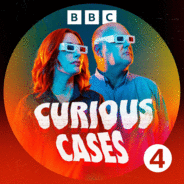"What’s the point of wasps?" asks listener Andrew, who is fed up with being pestered. For this series, with lockdown learning in mind, Drs Rutherford and Fry are investigating scientific mysteries for students of all ages. Do wasps do anything to justify their presence as a picnic menace?Ecologist Seirian Sumner researches social wasp behaviour and champions their existence. Not only do yellow jacket wasps perform important ecological services as generalist pest controllers of aphids, caterpillars and flies in the UK, they have complex societies and may even perform pollination services, making them more like their better-loved bee cousins than many might think.However, much remains unknown about wasps’ contribution to our ecosystem. Seirian works with entomologist Adam Hart, and together they run The Big Wasp Survey each summer, a citizen science project dedicated to find out more about UK wasp species and their populations. Prof. Hart sets up an experimental picnic with Dr Rutherford to try and attract some native wasps, and discusses why they are so maligned. But in some parts of the world UK wasp species have become a major problem. Just after World War II, having unwittingly chosen some aircraft parts destined for New Zealand as their overwintering home, some wasp queens woke up in the city of Hamilton. With no natural predators or competitors, they quickly established a growing population. Fast forward to today, and by late summer the biomass of wasps becomes greater than all the birds, rodents and stoats in the southern island’s honeydew beech forests. Multiyear nests have been discovered that are over three metres tall and contain millions of wasps. Researcher Bob Brown is digging into wasp nests back in the UK to discover which species keep wasps in check here, and whether they might work as biological control.This causes the doctors to ponder the problems of humans moving species around the planet. Accidental or even well-meaning introductions all too often become invasive. As climate change and urbanisation accelerate, wasps may become more helpful in some ways and more harmful in others.Presenters: Hannah Fry, Adam Rutherford
Producer: Jen WhyntieFirst broadcast on BBC Radio 4 in 2020.

Comedy & KabarettWissenschaft & Technik
Curious Cases Folgen
Hannah Fry and Dara O Briain tackle listeners' conundrums with the power of science!
Folgen von Curious Cases
136 Folgen
-
Folge vom 23.06.2020The Sting in the Tail
-
Folge vom 16.06.2020The Seeded Cloud"Could you make a machine to make it rain in minutes?" asks listener Alexander from Hampshire, aged 12. For this series, with lockdown learning in mind, Drs Rutherford and Fry are investigating scientific mysteries for students of all ages. Rutherford and Fry dive into the clouded story of weather modification. First, we need to decide where and when we might deploy any rain machine. Liz Bentley, Chief Executive of the Royal Meteorological society, takes us through the science, maths and art of predicting the weather. Hannah heads down to the BBC Weather Centre to meet meteorologist Helen Willetts, who takes us through the highs and lows of forecasting.And then for the technology itself. Mark Miodownik, scientist and author of Liquid: The Delightful and Dangerous Substances The Flow Through Our Lives, reveals that a technique called cloud seeding has almost certainly been tried in different places around the world for decades. But, whilst it’s supposed to induce showers and even clear the way for sunny spells, the results aren’t always reliable. And even if we can make it rain, Liz explains why messing with the weather may be at our peril. Presenters: Hannah Fry, Adam Rutherford Producer: Jen WhyntieFirst broadcast on BBC Radio 4 in 2020.
-
Folge vom 09.06.2020The Growling Stomach"Why do our tummies rumble - and when they do, does it always mean we are hungry?" asks listener James, aged 12. For this series, with lockdown learning in mind, Drs Rutherford and Fry are investigating scientific mysteries for students of all ages. To get to the bottom of this noisy problem, the doctors tune in to our guts.Geneticist Giles Yeo studies food intake and obesity. He explains the wavy workings of our digestive system, and how those audible rumbles are a sign that digestion is taking place – a phenomenon thought to be onomatopoeically named 'borborygmi' by the ancient Greeks, and explored further in the gruesome 19th century experiments of surgeon William Beaumont. However, tuning in to the gut’s sounds can tell us more than whether we need a snack. Family doctor Margaret McCartney takes us through the process of how and why she and her medical colleagues may use a stethoscope to listen to your abdomen for both particular noises and silence. Microbiologist Barry Marshall has taken medical listening one step further in his Noisy Guts Project. Inspired by microphones used to listen for termites hiding in walls, the Nobel Prize-winning scientist is trialling an acoustic belt, which could be worn to help diagnose and treat Irritable Bowel Syndrome.Presenters: Hannah Fry, Adam Rutherford Producer: Jen WhyntieFirst broadcast on BBC Radio 4 in 2020.
-
Folge vom 03.06.2020We’re back!Rutherford & Fry are back with longer duration episodes brought to you from slightly shouty socially distanced studio and bedroom settings.
